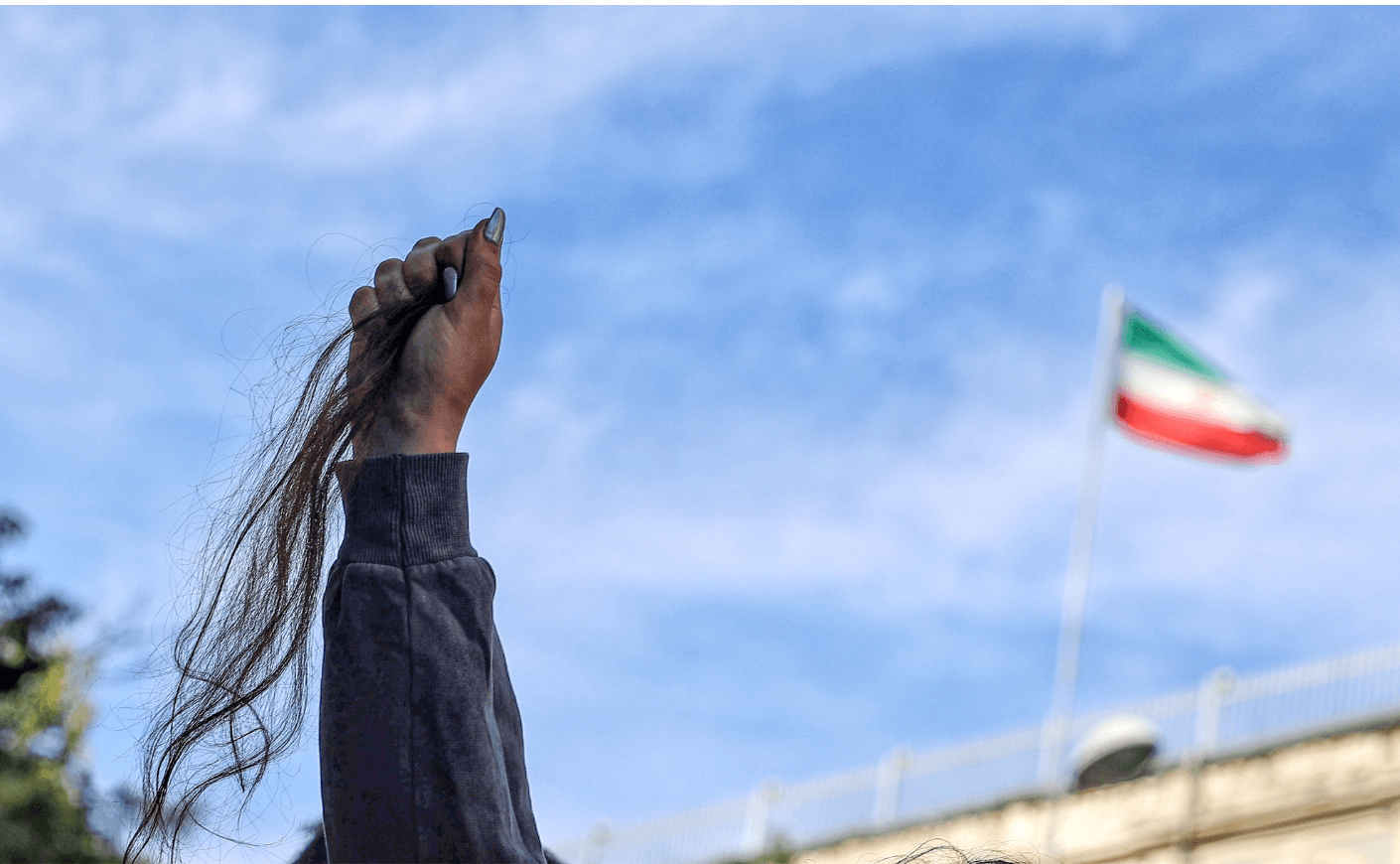For women in Iran, their bravery lives alongside their fear.
Whenever I feel the sunshine on my bare arms, I think of my mother. Scrupulous about her skincare, she used to tell me to get in the shade or slather on some sunscreen, neither of which I listened to. Then she would remind me that my female cousins in Iran don’t have the luxury of wearing tank tops, and to appreciate my freedom. Naturally, I didn’t do that either.
My family is from Iran, and though I was born in America, I lived in Tehran with my family for 5 years through the Iranian Revolution and the subsequent Iran-Iraq War. My family was extraordinarily lucky. We left in 1983 and found a home in suburban Baltimore: brick houses lining shady streets, kids riding their bikes home from school. Our life was the polar opposite of the fomenting revolution and atrocities of the war that we had readily left behind.
These days, however, I’m reminded of Iran all day long. My inbox and Instagram feed are flooded with images of protestors in Iran. Family and friends, in America and across the world, have been emboldened by the death of Mahsa Amini, a young woman killed by Iran’s so-called “morality police” for not wearing hijab. Iranian women are cutting their hair and taking off the hijab in acts of defiance against the Iranian government, a regime that has forced women to wear hijab for 40 years with penalty of imprisonment, torture, or death.

When I was 9 years old, my mother and I were visiting family in Tehran during the height of Iran’s restrictions against women. We were in a store looking at watches when a woman came in, her frosted hair peeking out from a flowered silk headscarf, her red lips glossy with lipstick. I noticed her light-pink fingernails as she picked up a watch and turned it over. A few minutes later, a man came in, breathless and panting. “They’re doing raids,” he barked. “Tighten up.”
My mother pulled down her hijab and then made sure all of my hair was hidden. “Don’t talk,” she whispered, sure that my accent would give away that I lived in America.
The shopkeeper, a woman, grabbed some tissues and offered to help the woman with the flowered headscarf take her lipstick off. She obliged and within seconds, I saw blood covering the glass display case and the woman clutching her lips, screaming. And then I saw the blade peeking out from the bloodied tissues sitting on the case. The shopkeeper had sliced across the woman’s lip.
Then I saw my mother. Enraged. She held the woman as she sobbed, pressing tissues against her lip to stop the bleeding. “I’m a dentist” she said, “let me help you.” ”She’s a disgrace,” the shopkeeper yelled. “She deserved it.”
My mother looked up, a fire in her eye. “The only disgrace is you. What right do you have to hurt her?”
I picked up the woman’s scarf and my mother gently wrapped it around her head, splotches of blood soaking the embroidered roses lining the edge.
When we got to my grandparents’ house that night, my mother’s anger had given way to exhaustion. She balled up her hijab and tossed it onto the floor.
“Why did she do that?”
“Because she thinks that a woman wearing makeup is somehow an affront to Islam.”
“No. Not the shopkeeper,” I said. “Why did that woman wear lipstick and show off her hair when she knows what the police might do to her?”
My mother looked at me squarely in the face, one of the few times she was truly angry with me. Every bit of exhaustion had vanished and was replaced with a steely resolve.
“Don’t ask me why a woman wears makeup or colors her hair or paints her fingernails,” she said with gritted teeth. “Ask why it bothers someone else so much. Don’t ask why she broke the rules. Ask why they made the rules.”
I recently saw a video of a woman in Iran saying that all she wanted to do was feel the wind in her hair as she walked down the street. She asked, quite simply, “Who does it bother that I want to do that?” These women in Iran cutting off their hair and marching in broad daylight without hijab, these girls who want to go to school without covering their hair and arms and legs, are asking the right questions — and they are absolutely enraged by the answers. They know they might be killed or tortured, their fate the same as Mahsa Amini’s. But their bravery lives alongside that fear. They know they can’t live another day with the answers they’ve been given.
My daughter is 7, the same age as some of the Iranian protestors. As I drive her to school in the morning, no matter the temperature, she likes to put her window down. When I ask her why, she says she likes the feeling of the sun on her bare arms. I indulge her and watch the wind whip through her long brown hair, her fingers reaching out of the car to grasp the rays of sun, her sparkly nail polish shining. She’s the spitting image of my own mother at her age. My boys start yelling, “It’s too windy. Put the window up!” But I ignore them, turn the music a little louder, and let her enjoy the sunshine on her arms. What a simple joy. What an enormous one.
Susan Sajadi is a trial attorney living in Charlottesville, VA, working (slowly) on her first book.








